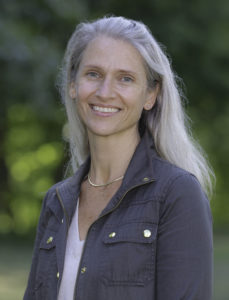Bringing the Joy
Message from the headmaster
We have waited a little apprehensively for students to return to school this year—but the first week at St. Johnsbury Academy has turned our concern to delight. I’m pleased to report that our young people are ready to go.
In the spring we worried about absences, attitudes of helplessness, students saying “I can’t do it,” and above all, anxiety—not only among students but among adults. Some students simply did not want to come to school after two years of pandemic-affected learning, an aversion so widespread that “school avoidance” has recently become an official disorder. And we saw and read about many teachers who have burned out and left the profession entirely. The resulting shortage of teachers is now a national crisis.
A few weeks ago, the Academy’s faculty and staff came back together to think and talk about how to approach this year, and to find opportunities as a group to renew their love of teaching and hope for our students. One of these opportunities was a session with the dynamic psychologist Lynn Lyons, who talked about how we can help students (and ourselves) manage anxiety and what she called “[anxiety’s] pal, depression.” Where one goes, she said, the other often follows. Having read about and seen young people struggling with anxiety and depression as a result of the pandemic, and facing unprecedented mental health challenges, we wanted to be ready to help them be well and healthy at school.
Anxiety is a natural and even essential emotion, and our work with Lynn Lyons encouraged us to remember that. While some struggle with anxiety disorders, most of the anxiety we’re talking about these days is the garden variety kind that is supposed to give us a little adrenaline before a big performance or help us avoid danger. Anxiety happens in the body as well as the mind, and sustained anxiety is damaging and needs to be addressed.
A very good question presented itself: why would our students NOT be nervous, anxious, upset, and made unhappy by what they are hearing about themselves?
They’re hearing that they are so far behind academically that they may never catch up. They’re hearing that our society is divided and dysfunctional, that democracy is in danger, that our institutions are in decline and many of our systems unjust, that the very planet we live on is unstable, that they as a generation may have been irreparably damaged by the pandemic and may not have the prospects that previous generations have enjoyed. They are listening to what we say. We need to ask ourselves why we would think these children would feel anything but anxiety when the world being forecast for them is so often bleak.
Thinking about anxiety as something we can approach without pathologizing it—as something we can confront as a community of educators—felt like a bit of a revelation. We can try to be careful about talking with our students, and even with each other—in the language of catastrophe. It is hard to avoid, but it doesn’t actually help. What does help, and what we can focus on as a school, is being there to listen and empathize and make connections with them. We can know each student as a whole person and understand their particular worries—and then help them to overcome those worries and remove obstacles to success.
Students need to connect—to keep their heads up and look one other in the eye—and to engage with each other and us. We’ll be trying all kinds of things to encourage this listening, engagement, and involvement this year. We’ll bring Lynn Lyons back to talk with students. We will have them put away phones for most of the day, and earbuds for the whole day. We will tell them how important it is to us that they feel welcome, and not just welcome but valued, seen, and heard. High school is famous for being both stressful and exciting. We want each of our students to have people here they trust and can reach out to if they’re having trouble—including one of our four counselors.
Perhaps the most compelling message we heard that day, as we began welcoming students back, was that it’s crucial for young people to see the adults in their lives being joyful. We needed reminding that our own enjoyment—showing our love of life and learning—can help heal us.
From what we’ve seen so far, the majority of our students are simply excited to be back and eager to be part of things—we heard one student say “I’m so hopeful!” There’s hard work ahead, but this first week has made us hopeful, too. And we’re ready to bring the joy.

Dr. Sharon L. Howell
Headmaster

